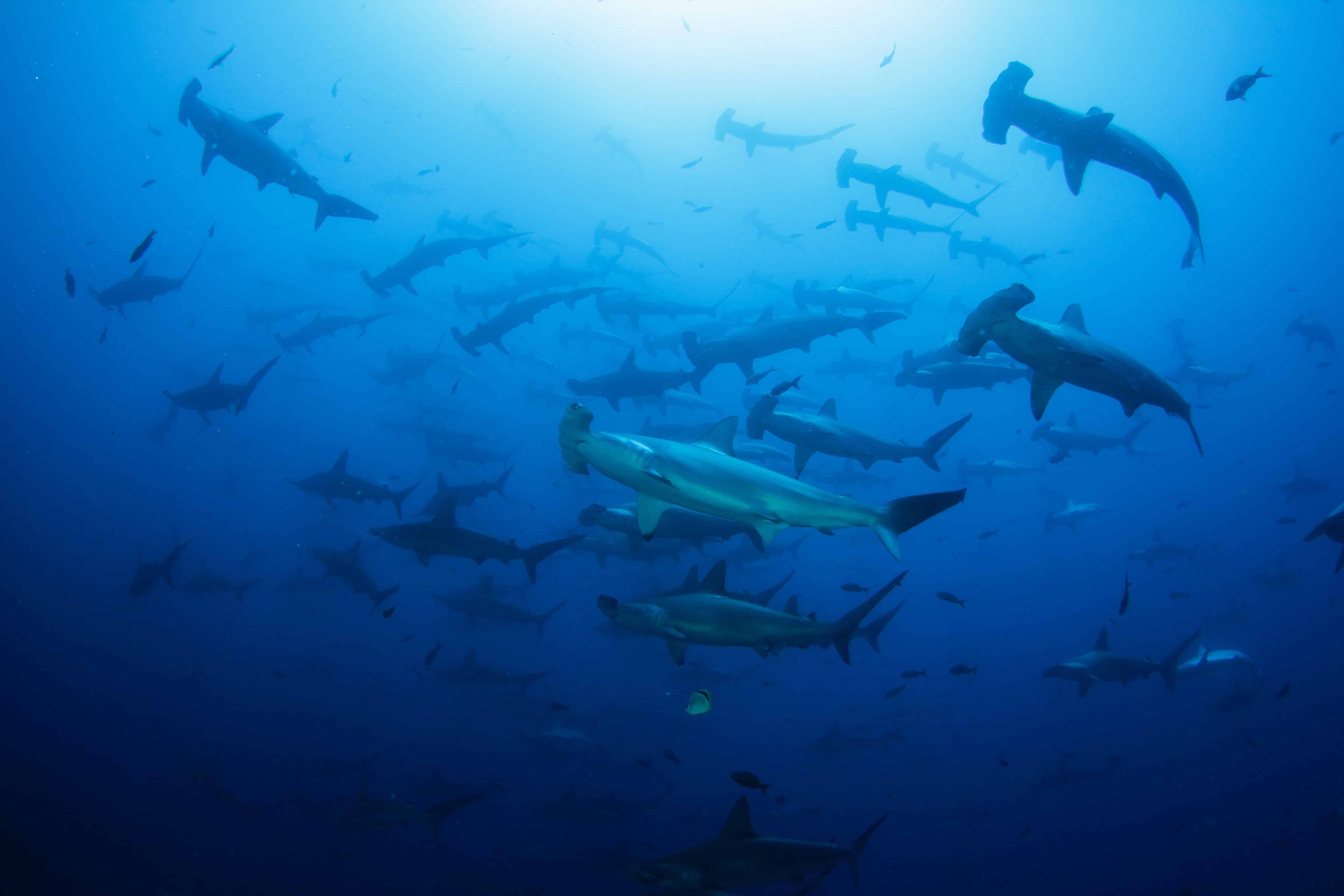Last November, Costa Rica received the 2024 Oceans Advocate Rob Stewart Award at the annual “Save Our Oceans” gala, organized by Fins Attached in Denver, Colorado. The event brought together conservationists, scientists, and supporters to promote ocean protection, with notable attendees including astronaut Michael Gernhardt, marine biologist James Sulikowski, and Costa Rica’s Environment Minister Franz Tattenbach.
The award recognized a decree published in February 2023 prohibiting the fishing, transshipment, landing, and commercialization of three species of hammerhead sharks, Sphyrna lewini, Sphyrna zygaena, and Sphyrna mokarran, in Costa Rican territorial waters. If caught incidentally, the sharks must be released promptly and unharmed. All three species are listed as vulnerable on the International Union for Conservation of Nature (IUCN) Red List.
Costa Rica is home to one of the world’s largest populations of hammerhead sharks in the Pacific Ocean, especially around Cocos Island, a World Heritage Site. Additionally, the Golfo Dulce Hammerhead Shark Sanctuary was established in 2018 to protect juvenile sharks and involve local communities in conservation efforts.
Six months after receiving the award, Fins Attached and Marine Watch International sent a letter to the Costa Rican government urging it to sign a memorandum of understanding and a contract to implement tracking technology for released sharks, among other commitments.
However, Minister Tattenbach described the request as an attempt at “blackmail” by two international organizations that, he claimed, were trying to influence Costa Rica’s marine public policy in exchange for environmental recognition. While acknowledging that the proposed technology might be useful, Tattenbach insisted that public policy should not be subject to external pressure.
“A prize will never buy Costa Rica’s public policies. Costa Rica’s public policies are not for sale,” he stated. In a video message, the Minister emphasized that conservation policy in Costa Rica is developed “by conviction” and in the country’s interest, not due to international demands. “We are not dictated by any NGO, nor do we accept conditioned international awards,” he added.
Critics from Costa Rica’s environmental sector, however, questioned the award’s legitimacy. Randall Arauz, a marine biologist and shark conservation advocate with Marine Watch International, called the recognition “absurd,” arguing that the Ministry of Environment does not currently have authority over sharks.
Arauz pointed out that in 2017, this authority was transferred to the Costa Rican Fisheries Institute (Incopesca), a move declared illegal by the Supreme Court in 2023. He said the Ministry has ignored the ruling, allowing Incopesca to retain control over these species.






